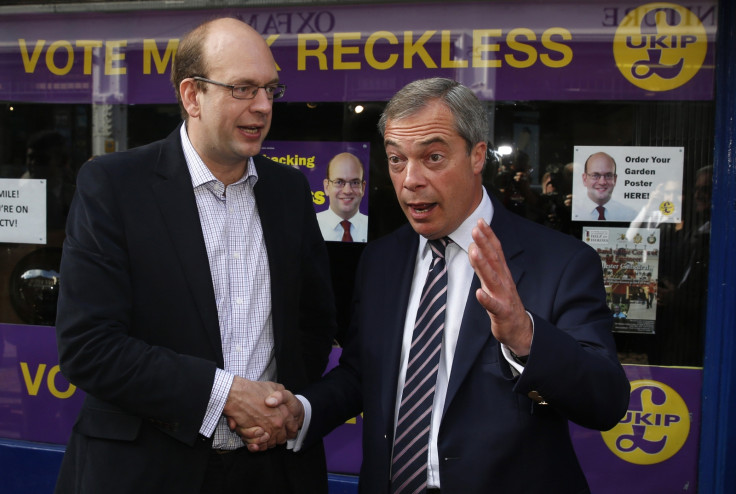Rochester By-Election: What Does the Mini-Earthquake from Mark Reckless Mean for UK Politics?

Ukip caused another mini-earthquake under Westminster after the Eurosceptic party's candidate won the crucial Rochester and Strood by-election.
Conservative defector Mark Reckless is now Ukip's second MP after Douglas Carswell won the Clacton by-election in October.
But the similarities between the two elections ends there.
The Ukip campaign in Clacton was all about Carswell, a self-styled "tribune" for his constituents and a staunch advocate of reforming Westminster's democratic institutions.
The tactic worked. The Ukip MP increased his share of the vote in the by-election, compared to the 2010 General Election (59.7% vs 53%).
In contrast, Reckless' vote share fell by more than 7% from 49.2% in 2010 to 42.1% in 2014.
The drop reflected Ukip's approach to the by-election, which was more about Farage and Ukip.
In addition, David Cameron decided to put up a fight in Rochester and Strood.
Conservative cabinet members were told to visit the constituency at least five times before the polls opened.
The result of this action was that the Conservative candidate, Kelly Tolhurst, was able to substantially eat into Reckless' support and reduce his majority to 2,920.
However, it is important to stress that a win is indeed a win.
The Ukip victory will give the party momentum before the 2015 General Election and could push some backbench Conservative MPs to jump ship.
Kettering MP Philip Hollobone is the Tory most likely to defect to Ukip before Christmas at 2/1, according to bookmaker Ladbrokes.
Reckless' success is also likely to prick the ears of potential Ukip party donors.
The party won the European Parliamentary Elections and now has two MPs – Ukip certainly looks like a more credible investment than 12 months ago.
Cameron Wounded
The result is another blow to Cameron, who has been well and truly outflanked on the right by Farage's party.
Ukip have seized on the fact that net migration to the UK jumped by 38% to 243,000 in 2013/14 – well below the Prime Minister's less than 100,000 by May 2015 target.
In addition, the party continues to pressure Cameron over the UK's membership of the European Union (EU).
The Conservative leader attempted to counter the threat by offering a referendum in 2017 if his party wins the 2015 General Election.
But it looks like that pledge has not had its desired effect as Ukip continue to gather support.
However, despite this threat from the right, Cameron is doing very well in the opinion polls.
With a general election looming, you expect voter discontent to take hold and watch the main opposition party jump ahead in the polls, but Labour has failed to take the fight to Cameron.
The latest poll from YouGov for The Sun, for example, gave the Conservatives a one-point lead over Labour.
Ed Miliband has faced a leadership "crisis" and Emily Thornberry's controversial Tweet, which had an image of a white van and three St George's flags outside a house in Rochester, will only make matters worse.
But Miliband is not the only party leader who is struggling.
Liberal Democrat Collapse
Nick Clegg's party has dropped to 7% in the latest poll from YouGov – well below the 23% of the vote share the Liberal Democrats won in 2010.
The fall was reflected in the Rochester and Strood by-election.
The Liberal Democrat candidate, Geoff Juby, saw his share of the vote plummet from 16.3% in 2010 to 0.8% in 2014.
The big surprise of the by-election was the Green Party result.
Clive Gregory garnered an impressive 1,692 votes – translating into 4.2% of the vote share, up from 1.5% in 2010.
This result should be another warning sign for Labour as the Greens are now threatening the party's left flank.
A poll from YouGov for The Sun (separate to its latest survey) earlier in the month revealed that Natalie Bennett's party jumped to 8% in the national opinion polls.
© Copyright IBTimes 2025. All rights reserved.






















